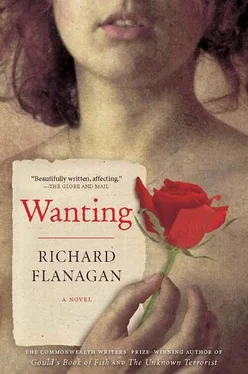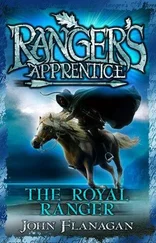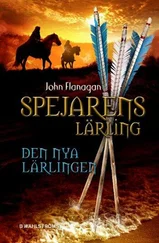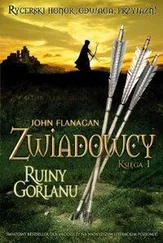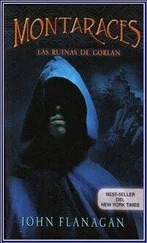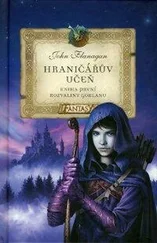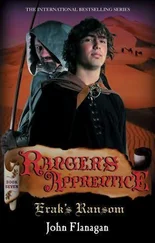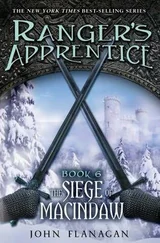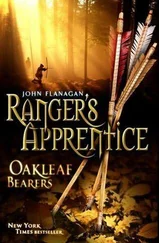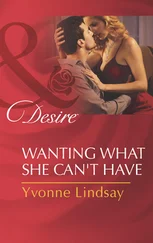Would not the men, he now asked, if starving, have fallen prey to scurvy? And does not scurvy finally annihilate the desire to eat and, in any case, annihilate the power? Having readied and teased the reader with his trail of false leads and tempting possibilities, Dickens sprang his trap and revealed what he believed was almost certainly the truth behind the mystery.
‘ Lastly, no man can, with any show of reason, undertake to affirm that this sad remnant of Franklin’s gallant band were not set upon and slain by the Esquimaux themselves .’
He paused, his attention momentarily distracted by an odd thought.
‘ We believe every savage to be in her heart covetous, treacherous, and cruel .’
Realising his error, he crossed out her and wrote above it his . But did these words not sum up his own folly so many years before? And that odd thought took on the form and name of a woman, and Dickens muttered two words.
‘Maria Beadnell.’
And how that name irritated him, angered him, enraged him, reminded him of his wretched origins and the myriad humiliations he had determined never again to suffer. Before he had become Charles Dickens the brilliant, the beneficent and the virtuous genius of letters, he had been Charles Dickens the impetuous, the overly earnest and the not infrequently foolish unmarried youth.
Maria Beadnell. Then, he had presented himself to her banker father as an inferior. He never made that mistake again. His answer to hierarchy was his own uniqueness. He had even refused invitations from the Queen herself. He entered society now at his pleasure, on his terms.
Maria Beadnell, his first love, the mistaken impulse of his once undisciplined heart. And these words, undisciplined heart , constantly came back to him—a warning, a fear, the terror of who he might really be. He saw them in dreams inscribed upon the walls of unknown houses, found them appearing unbidden in his writing.
Maria Beadnell and her vile family had treated him as little better than a corpse to play with, to feast upon for their own amusement. Yet looking back, he reasoned that it was his rightful punishment for having given in to his passions rather than keeping them firmly under control. After all, wasn’t that control precisely what marked the English out as different from savages?
‘ Answer me, undisciplined heart! ’ he went so far as asking in one novel. But it never did. And so instead he bound and chained it, buried it deep, and only such severe disciplining of his heart allowed him his success, prevented him from falling into the abyss like his debtor father, like his wastrel brothers; from becoming, finally, the savage he feared himself to be.
Determined to banish these loathsome thoughts from his mind, Dickens attempted to return to Dr Rae and the cannibals, but it was impossible. For now he only had one thought, and that thought one name. And after twenty-five years, Maria Beadnell—now Mrs Winter, married, Dickens presumed, to some acceptable dreariness—had written to him, and they had met at a dinner conveniently and respectably staged at a friend’s home.
Love—what of it?
He looked at her withered flesh, her thin lined lips, her bull neck dissolving into the lines of her bosom, crazed as old varnish. She had grown broad and was constantly short of breath, panting like an aged spaniel. Dickens turned to the other guests and said, with a smile and not without ambiguity:
‘Mrs Winter is a friend of childhood.’
Once, he had mistaken Maria Beadnell’s dull emptiness for enigmatic mystery. And now she, where once contemptuous of him in youth, was flirtatious in middling years—with her ‘Charlie this’ and ‘Charlie that’—how vile it all was! How repellent human beings could be! Fat and dull and full of phlegm, which she provoked into lava-like rumbling with her attempted coquettish giggle, the result was that he caught her cold and lost whatever affection he once had for her.
A few years before, he had even put her in the story that was so much his own, David Copperfield , casting her as the one whom David marries: Dora Spenlow. And as he sat there in his study that dark morning, attempting to rescue Sir John, there arose within Dickens another bitter memory he found unbearable: it was while writing this tale of his idealised life, of his unrequited love finally requited, of reshaping the world to just what he wanted it to be, that his ninth child was born and he had named her Dora.
How strange, how eerie he found it, then, when a few months after killing Dora in David Copperfield , his own little Dora would die. He had the horrid sense that the world warped to his fancy, but only to mock him in the cruellest way possible.
Outside his study, Dickens could hear his younger children running up and down the corridor, squealing and crashing into walls. He went and shut the second door he had specifically built for the purpose and returned to his desk. The sounds of his family were now distant and muted, but he had lost his train of thought altogether.
He put down his quill, stood and went to a bookcase and searched for several minutes, all the time wondering why he had ever wanted Maria Beadnell. Now he thanked God for her father’s prejudice against the lowly. He had a wife, the women of his books, the periwinkles of his nights. It was enough—it had to be.
Dickens’ eyes roamed the shelves until finally he found Sir John Franklin’s Journey to the Polar Sea . After two passes through the book, he found the pages he vaguely remembered; they were, he could now see, even more admirably suited to his purpose than he could have hoped. Whatever the truth of the book, it revealed Franklin as an infinitely better writer than poor old Dr Rae. Sir John Franklin, Dickens recognised, was surely as fine a creation of Sir John Franklin’s own pen as Oliver Twist was of his.
There were several passages in which Sir John recounted how, when utterly reduced by starvation at the nadir of his celebrated 1819 expedition, with eleven of his twenty men dead, there was a level of decency they never abandoned. Rather than countenance the thought of cannibalism, Sir John had eaten his own boots. Dickens felt cheered. That was an Englishman. Stout heart, stewed boots, decency dressed up as diet.
Feeling the pump was now primed, he began to narrate the story: how, when Franklin’s first expedition was starving, the Iroquois hunter Michel conceived ‘the horrible idea of subsisting on the bodies of the stragglers’, probably even killing one or two expeditioners to this end, and how Sir John Richardson then marvellously shot the devil through the head—‘ to the infinite joy ,’ Dickens now wrote, ‘ of all the generations of readers .’
His pen was once more moving in accordance with his fancy, his spirits rising with its life-giving flow. This is what he did! Who he was! He lived and found and knew himself only in story, and in this act of writing Dickens sensed himself becoming joined to Sir John’s doomed journey, and to that strange frozen world that held all their mysteries. He thought of how such great spirits as these would always endure stoically to the end, as would he in his marriage. Sir John would not make the error that the Iroquois Michel was condemned to because of race, that error of passion Dickens himself had once made because of youth. Had he not yearned to bite into Maria Beadnell’s thighs as keenly as the Esquimaux had wanted to feast on old Sir John’s gentlemanly drumsticks? But the mark of wisdom and civilisation was the capacity to conquer desire, to deny it and crush it. Otherwise, one was no better than the Iroquois Michel or an Esquimau.
The heart of the matter was obvious. The words of a savage could not be taken as the truth, ‘ because he is a liar ’. Besides, it was clear that cooked and dissevered bodies among this or that tattoo’d tribe proved only one thing.
Читать дальше
